Discover the Power of Solar-Integrated EV Charging
Car Charging Station For Home
Choose a company trusted and certified by industry leaders to provide specialist designed Solar EV charger systems and expert installations.
Book a quote with a member of our expert team.
Certified Quality
Forever Green Energy is trusted and certified by industry leaders, including Octopus and Tesla and boasts 13 years service from offices in Gloucestershire and South Wales.
Transform Your
Energy Journey
Homeowners with solar panels can enjoy completely free electric vehicle charging, transforming your solar investment into a personal fueling station. This seamless integration between your home's PV energy production and your electric vehicle creates the ultimate self-sufficient energy system.
When the sun powers your travels, you eliminate charging costs entirely—potentially saving you up to £1,000 annually compared to conventional petrol and diesel vehicles. Your solar-generated electricity flows directly to your electric vehicle, creating a truly sustainable transportation solution that's completely independent from grid fluctuations.

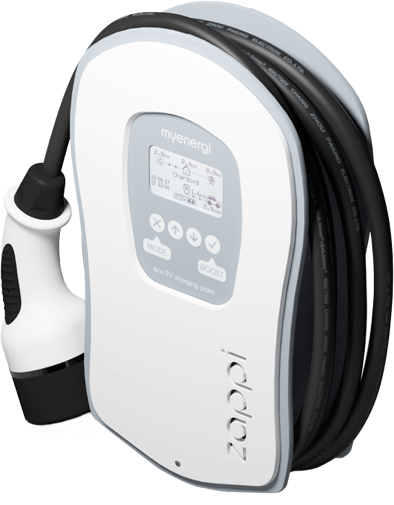
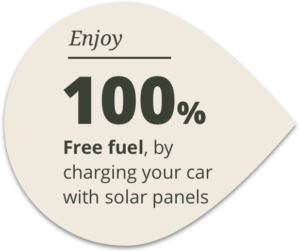

Goverment Approved. The EVHS (Electric Vehicle Homecharge Scheme) funds up to 75% towards the cost of installing your electric vehicle chargepoint.
Even When the Sun Sets, The Savings Continue:
For times when you choose to charge your car from the grid, you'll still benefit from significant savings:
- Electric charging costs approximately 2p per mile (based on 7p per kWh overnight Octopus intelligent Go rates)
- Conventional vehicles cost around 15p per mile (AA driving expenses report)
- Home charging stations qualify for a £350 OLEV grant to reduce installation costs
By integrating your EV charger with your solar system, you create a complete personalised energy system that maximises self-generated power while providing flexible backup options that still outperform traditional fuel costs.
*2p per mile based on 10p/kWh Economy 7 rate and 155 mile range of 30kWh Nissan LEAF.**Petrol cost based on AA driving expenses report 2014/15.
Personalised EV Charging
Integration
At Forever Green Energy, our expert team uncover your home’s unique energy usage pattern and design a complete energy system that integrates your EV Charger with your Solar PV and Battery storage systems. Our specialised integration allows your electric car to become an extension of your sustainable energy system, creating:
- Direct solar-to-vehicle charging pathways
- Intelligent coordination with battery storage
- Unified system monitoring through premium platforms like GivEnergy, Tesla, Octopus
- Future-proof design accommodating evolving technology

Why install an EV charging point at home?
Integrating EV charging points into your home isn't just about convenience—it's about creating a complete energy system that adapts to your lifestyle while maximising both environmental and financial benefits.
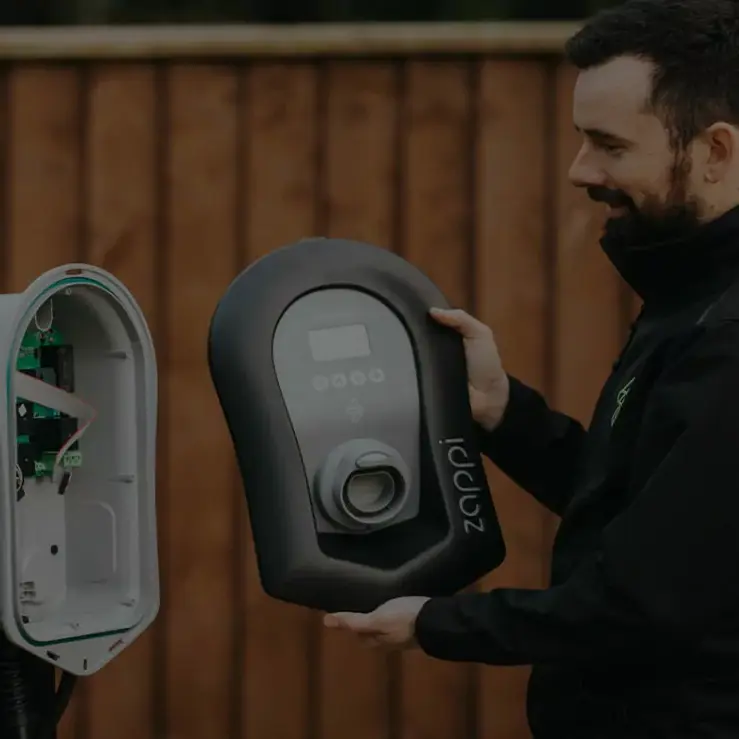
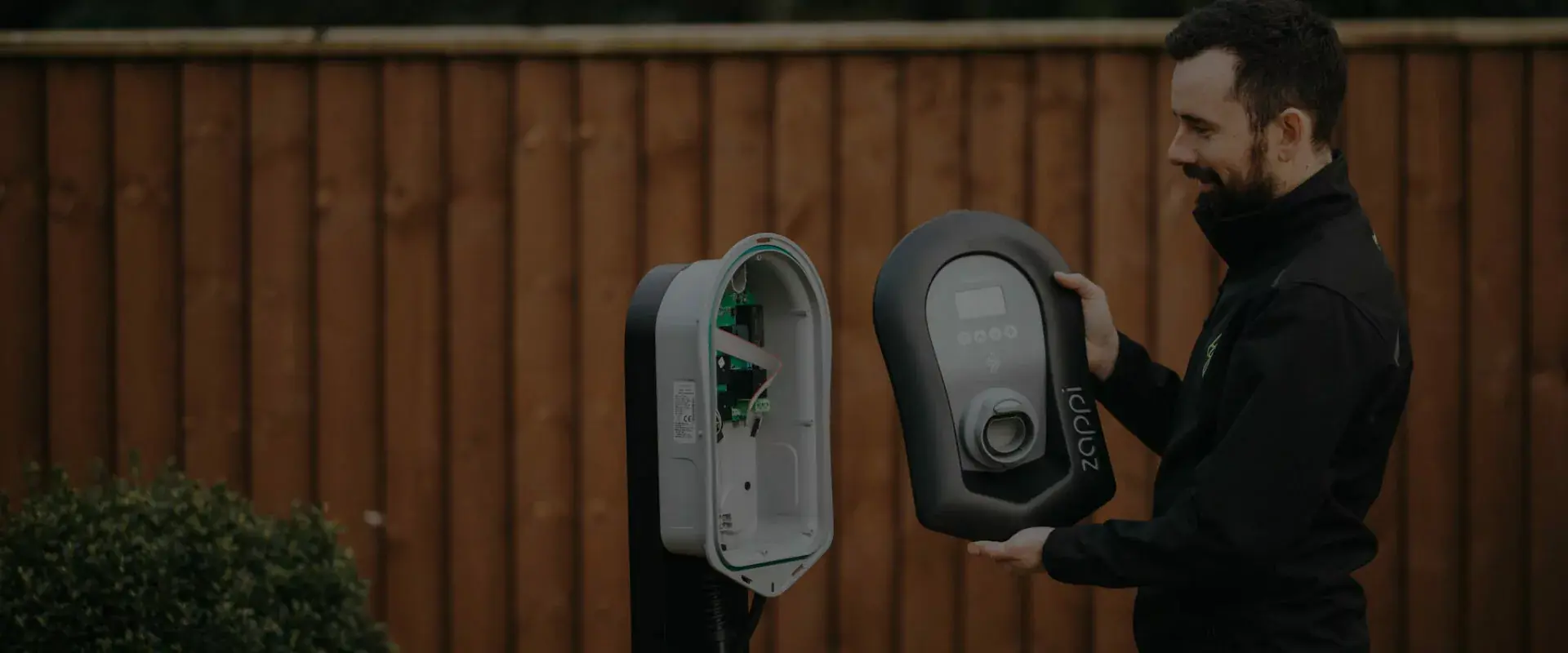

1. Intelligent Cost Management
Smart Off-Peak Charging: Program your charger to automatically activate during low-demand hours, capturing electricity at its most energy tariff.
Predictable Energy Costs: Take control of your vehicle's energy expenses with stable home charging rates versus fluctuating public charging prices, giving you predictable and optimised energy costs.
Property Value Enhancement: As electric vehicles become mainstream, homes with pre-installed charging infrastructure command premium market value, transforming your charging infrastructure into a valuable home asset.
75% Government Grant Available: Many homeowners further enhance their savings through available government grants designed to reduce initial installation investments.
2. Seamless Solar Integration
Solar Surplus Charging: An EV charger integrated into your household solar system allows you to divert excess solar energy that would otherwise flow back to the grid into your electric car’s battery.
Home Energy Management: By using the smartphone app you can track how your electric car uses your electrical supply, monitor the cost per charge. Overnight your car and EV charger become an integral part of your energy management system, increasing the use of your solar energy and improving the economic efficiency of your solar system.
Solar Forecast Charging: Advanced systems analyse real-time weather data to optimise charging schedules around peak solar production.

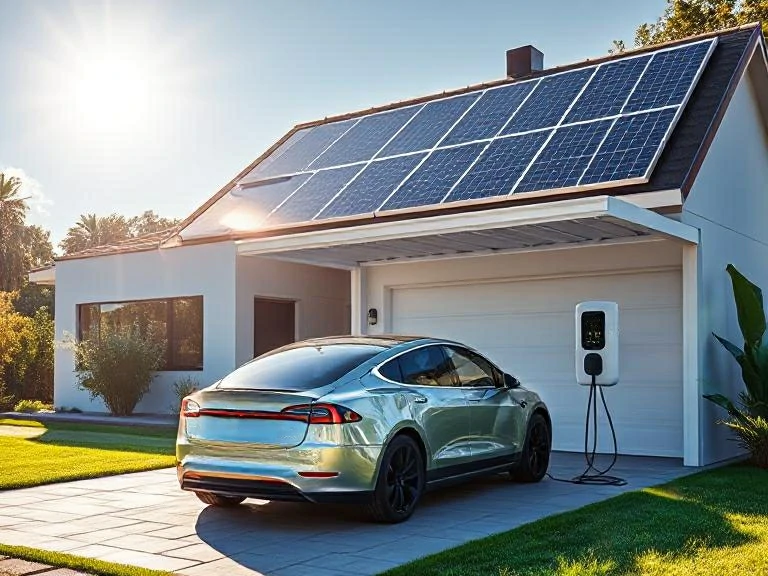
3. Convenient, Lifestyle Integration
Overnight Convenient charging: Wake to a fully charged vehicle every morning, eliminating the need to search for a public charging point or fight for a workplace charging point during your daily journeys.
Seamless Home Energy System: Integrate your EV charger with solar panels and battery storage for a complete energy system and enhanced installation. The system learns and adapts to your unique driving patterns and energy needs, creating an increasingly personalised experience over time.
Closed Loop System: You have the ability to establish a truly closed loop system that minimises grid dependence while maximising self-consumption of your renewable energy.
Why Choose Forever Green for your EV Charger installation?
We consider ourselves consultants rather than sales people. We examine your energy use pattern to fully understand your energy needs. We then work with you to specify the right EV charging solution for your home, selecting components from trusted suppliers.
Review our 5 Step Process
Selecting the right EV home charger
There are two types of home ev chargers suitable for modern electric cars; tethered cable or untethered. Our energy experts will assess your energy patterns and needs, your EV charger access points, the complete energy solution you are looking for before recommending the most suitable ev charger installation.

Tethered Chargers
Come with a power cable permanently attached to the unit. The charging cable has a Type 2 plug attached which has become the worldwide industry standard.

Untethered Chargers
Do not come with a cable attached to the unit. Meaning you will need to use a separate cable to charge.
Charging Modes Explained
The Smart chargers we recommend tend to have 3 charging modes – Eco+ (solar charging), Eco (standard 3.6kW slow charge) and Fast (7kw rapid, fast charge). You simply choose how to charge when you plug in.
Eco (Solar Charging)
Charge power is adjusted in response to changes in how you use electricity in the home, so that you get power where you need it and the charger doesn't affect your day-to-day-life. Charging continues until the vehicle is fully charged.
Eco+
This mode is similar to Eco, but charging will pause if there’s too much imported power from the grid. Charging continues when there’s surplus energy available e.g. from your solar battery.
Fast
The quickest way to charge your car. Using solar power and energy from the grid to charge your call at max power as fast as possible.
OLEV Approved

Grants can significantly reduce your initial investment, making home charging more accessible. The EVHS (Electric Vehicle Homecharge Scheme) funds up to 75% towards the cost of installing your electric vehicle chargepoint.
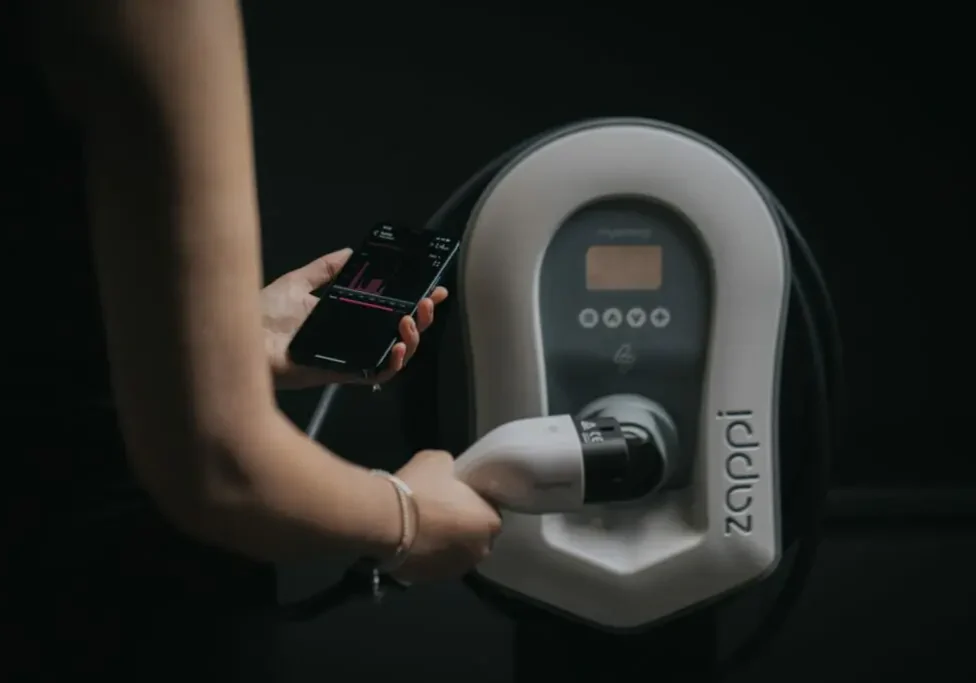

Trusted myenergi Zappi installers
MyEnergy Zappi EV Charger is effective as part of an intelligent energy solution. Its smart tariff compatibility integrates with programs like Intelligent Octopus Go—automatically utilising the most cost-effective economy tariffs.
Here’s what our customers think….
To find out more about what our commercial and residential customers think, look at our customer reviews and case studies
Have questions about EV Charger Installations?
Safe & Easy Charging with an EV Home Charger
Safe & Easy Charging with an EV Home Charger
Car Charging Station For Home
Choose a company trusted and certified by industry leaders and benefit from our specialist system designers and expert install.















